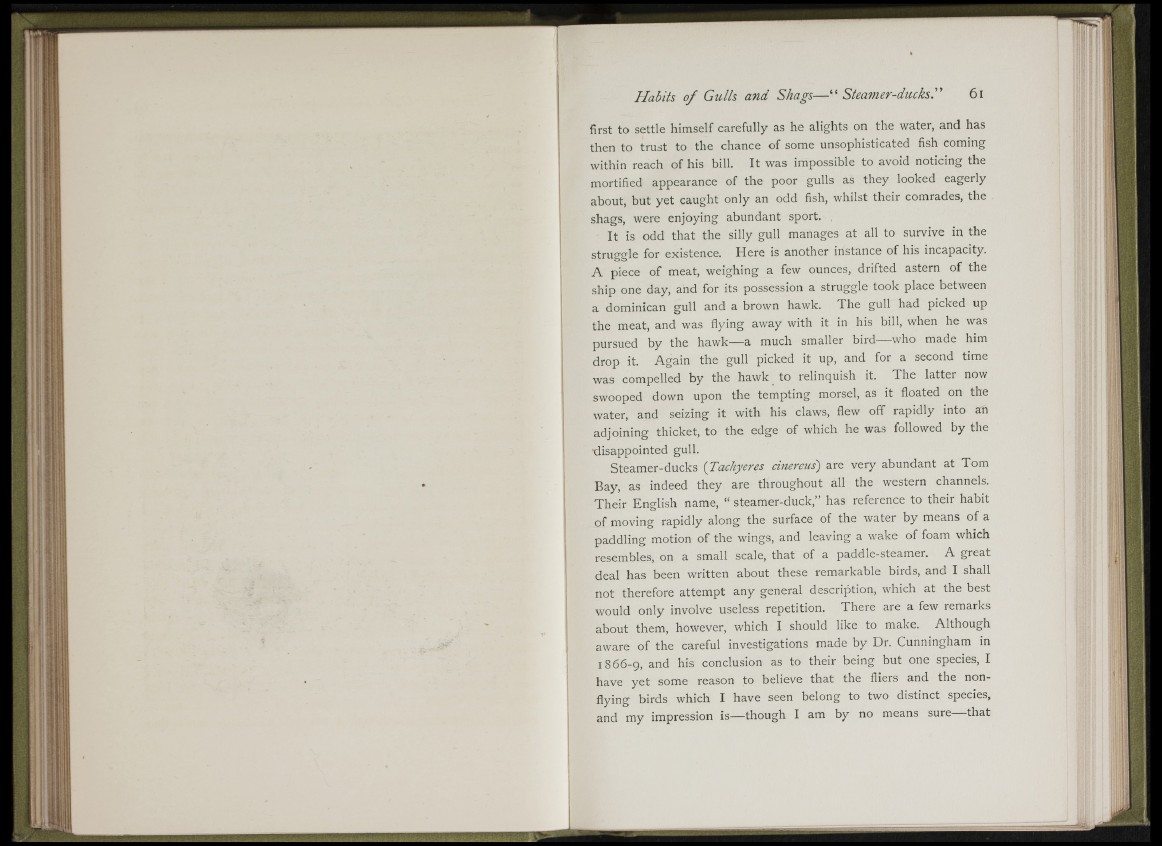
Habits o f Gulls and Shags— “ Steamer-ducksT 6i
first to settle himself carefully as he alights on the water, and has
then to trust to the chance of some unsophisticated fish coming
within reach of his bill. It was impossible to avoid noticing the
mortified appearance of the poor gulls as they looked eagerly
about, but yet caught only an odd fish, whilst their comrades, the
shags, were enjoying abundant sport.
It is odd that the silly gull manages at all to survive in the
struggle for existence. Here is another instance of his incapacity.
A piece of meat, weighing a few ounces, drifted astern of the
ship one day, and for its possession a struggle took place between
a dominican gull and a brown hawk. The gull had picked up
the meat, and was flying away with it in his bill, when he was
pursued by the hawk— a much smaller bird— who made him
drop it. Again the gull picked it up, and for a second time
was compelled by the hawk to relinquish it. The latter now
swooped down upon the tempting morsel, as it floated on the
water, and seizing it with his claws, flew off rapidly into an
adjoining thicket, to the edge of which he was followed by the
disappointed gull.
Steamer-ducks {Tachyeres cinercus') are very abundant at Tom
Bay, as indeed they are throughout all the western channels.
Their English name, “ steamer-duck,” has reference to their habit
of moving rapidly along the surface of the water by means of a
paddling motion of the wings, and leaving a wake of foam which
resembles, on a small scale, that of a paddle-steamer. A great
deal has been written about these remarkable birds, and I shall
not therefore attempt any general description, which at the best
would only involve useless repetition. There are a few remarks
about them, however, which I should like to make. Although
aware of the careful investigations made by Dr. Cunningham in
1866-9, and his conclusion as to their being but one species, I
have yet some reason to believe that the fliers and the nonflying
birds which I have seen belong to two distinct species,
and my impression is— though I am by no means sure that
i ÎJ
I